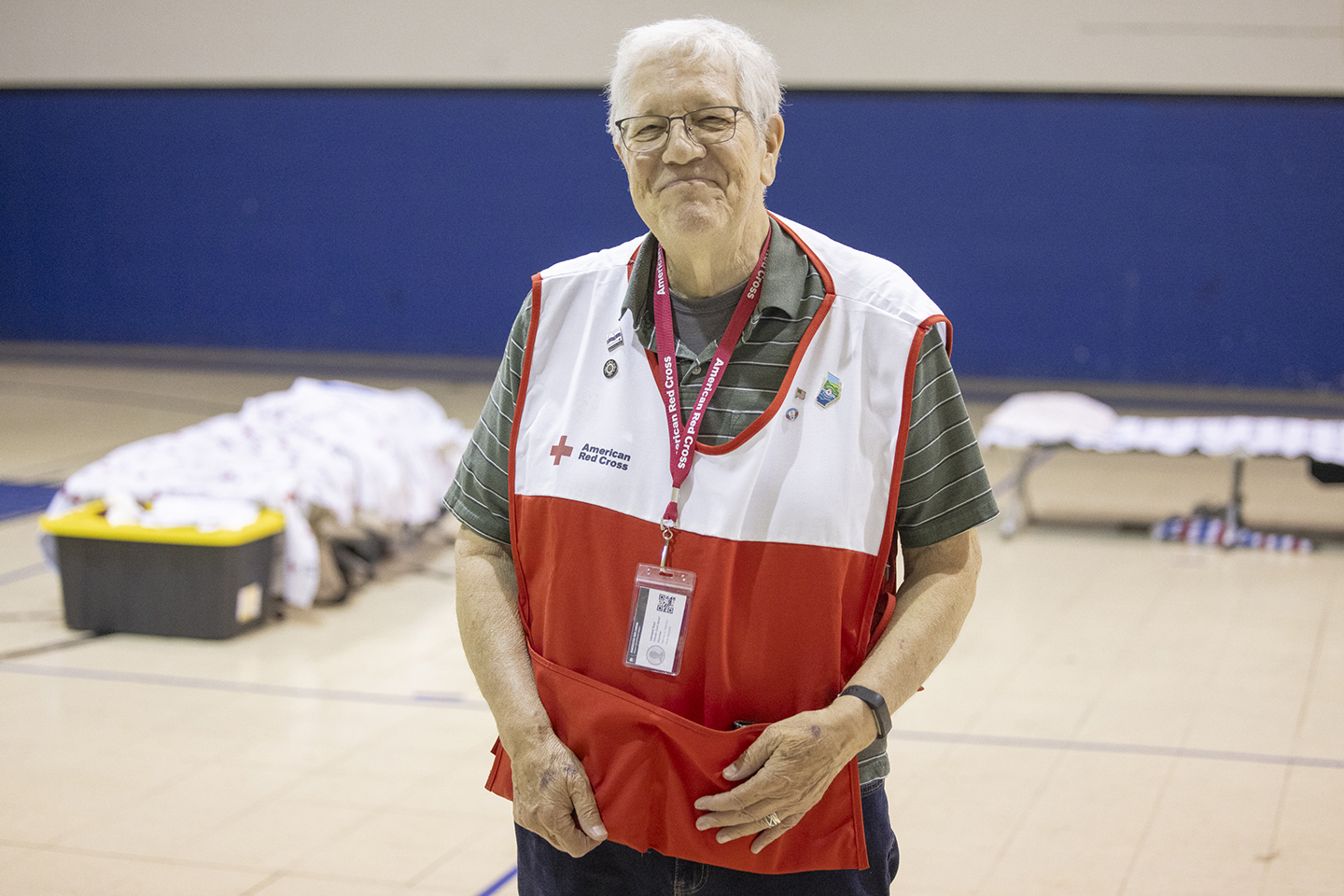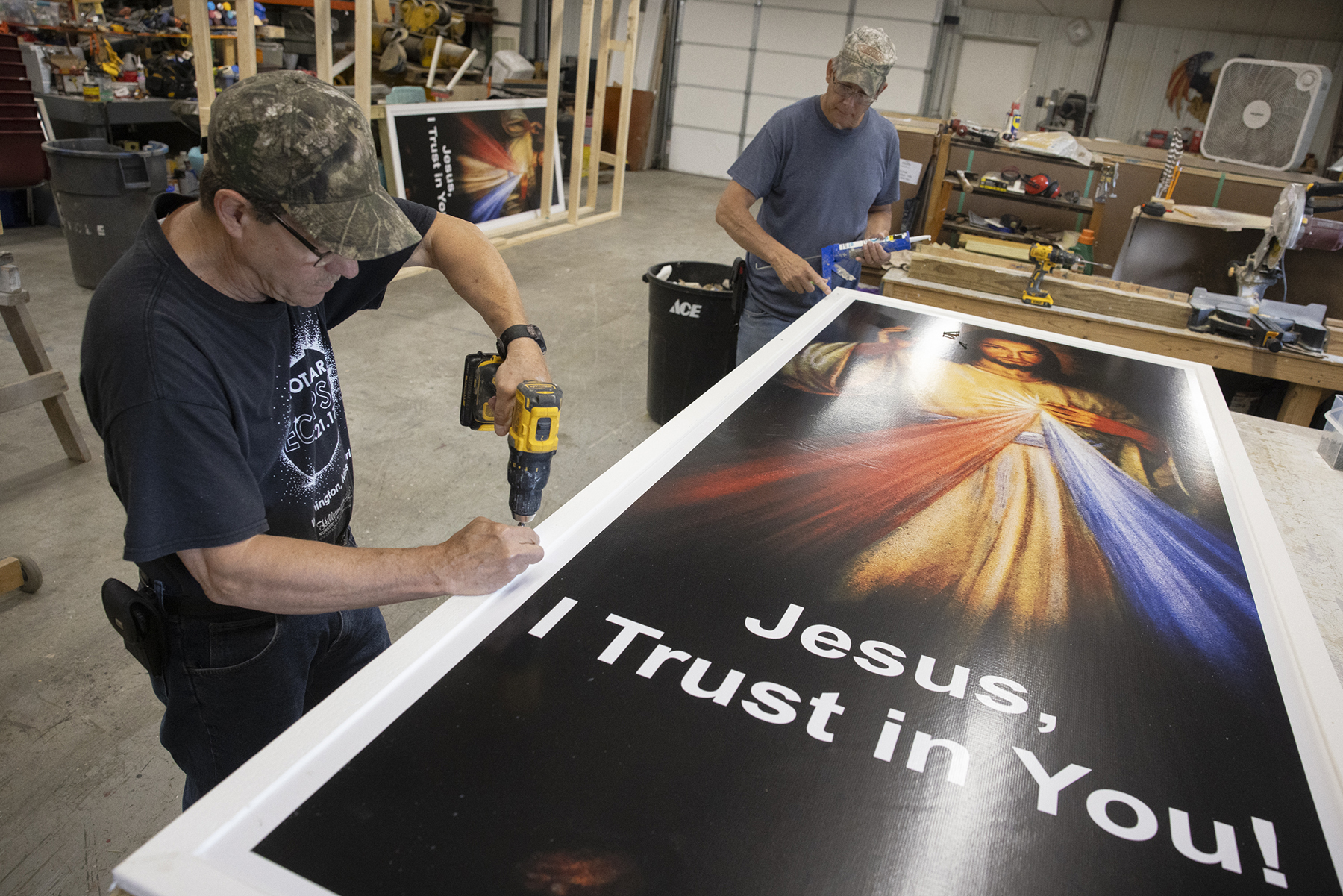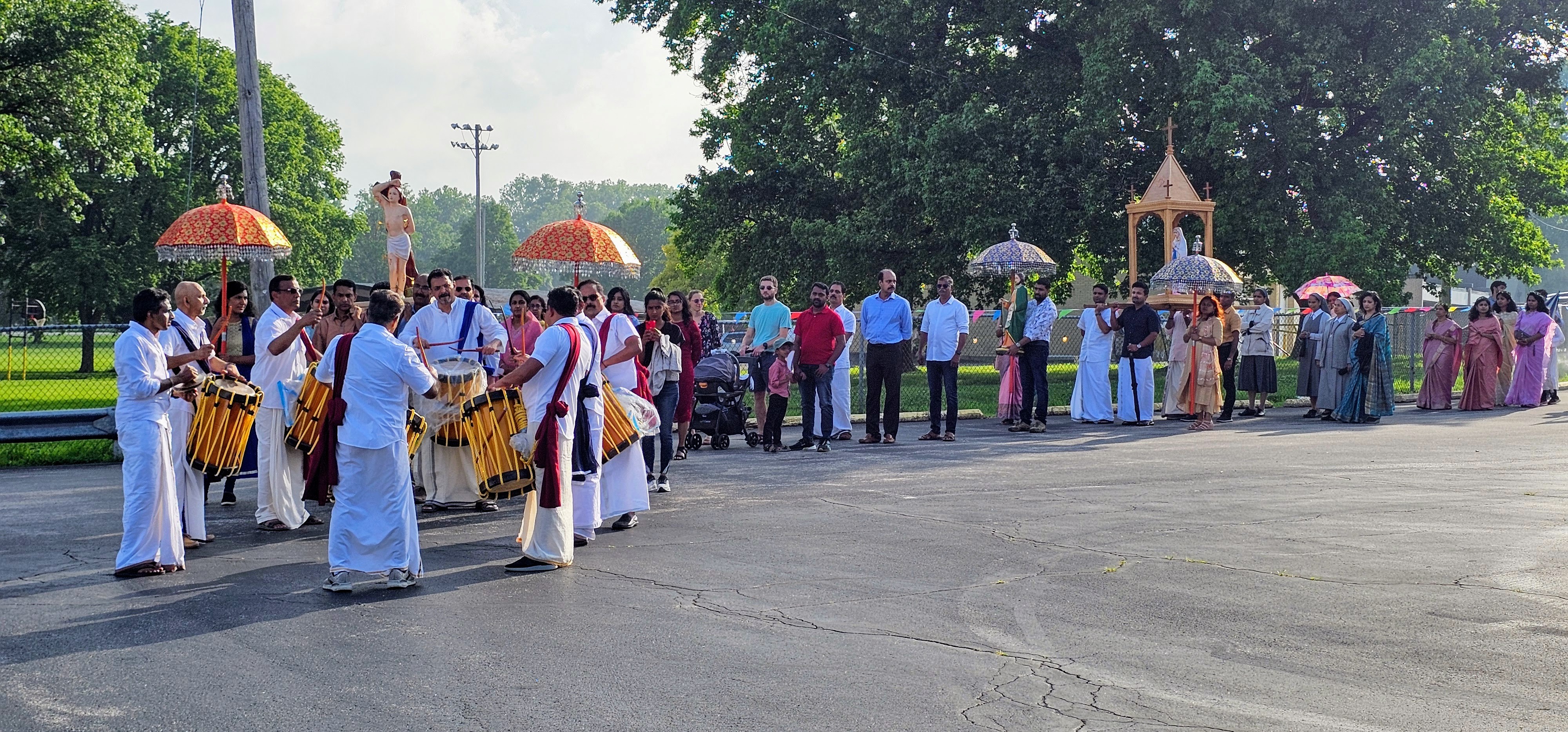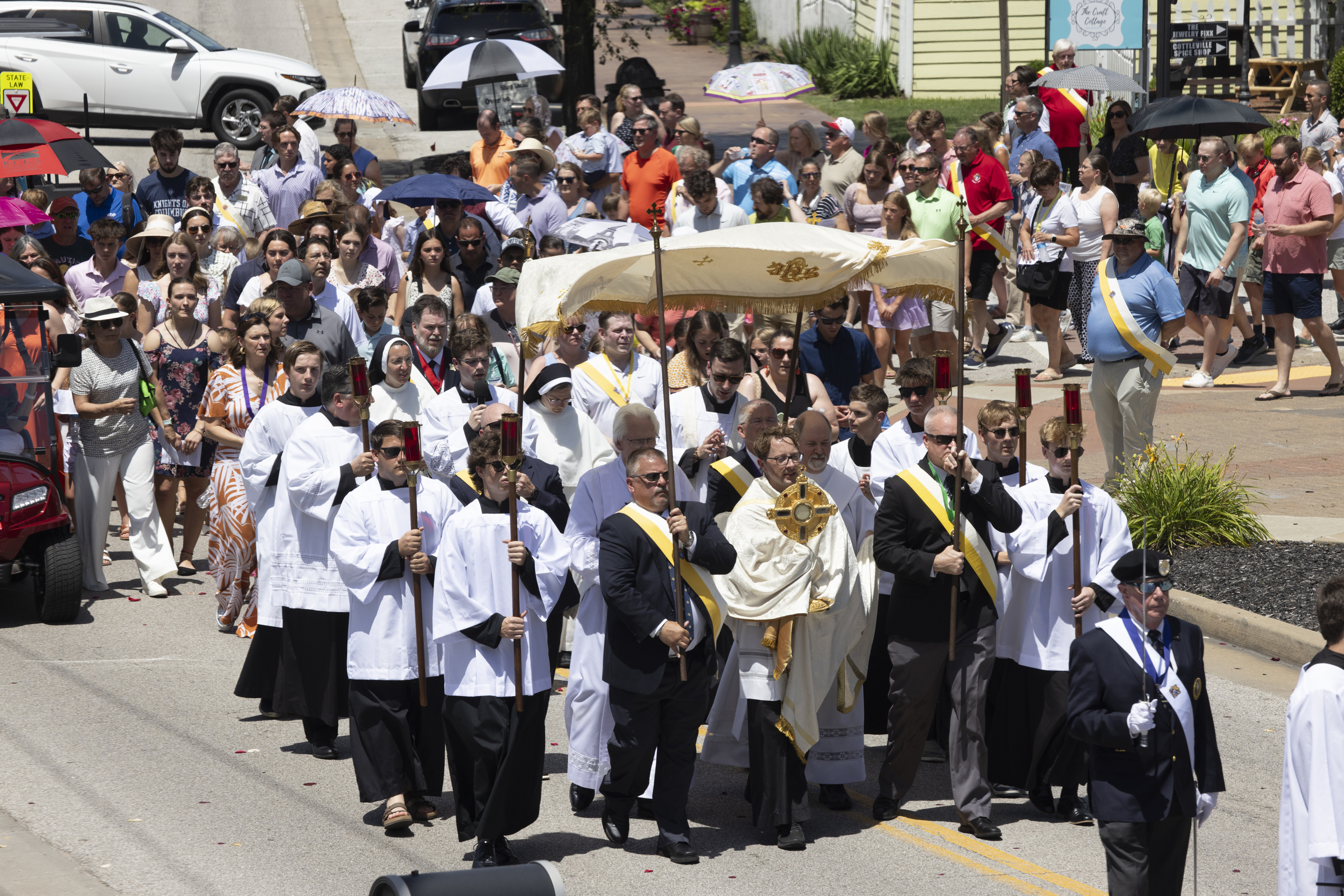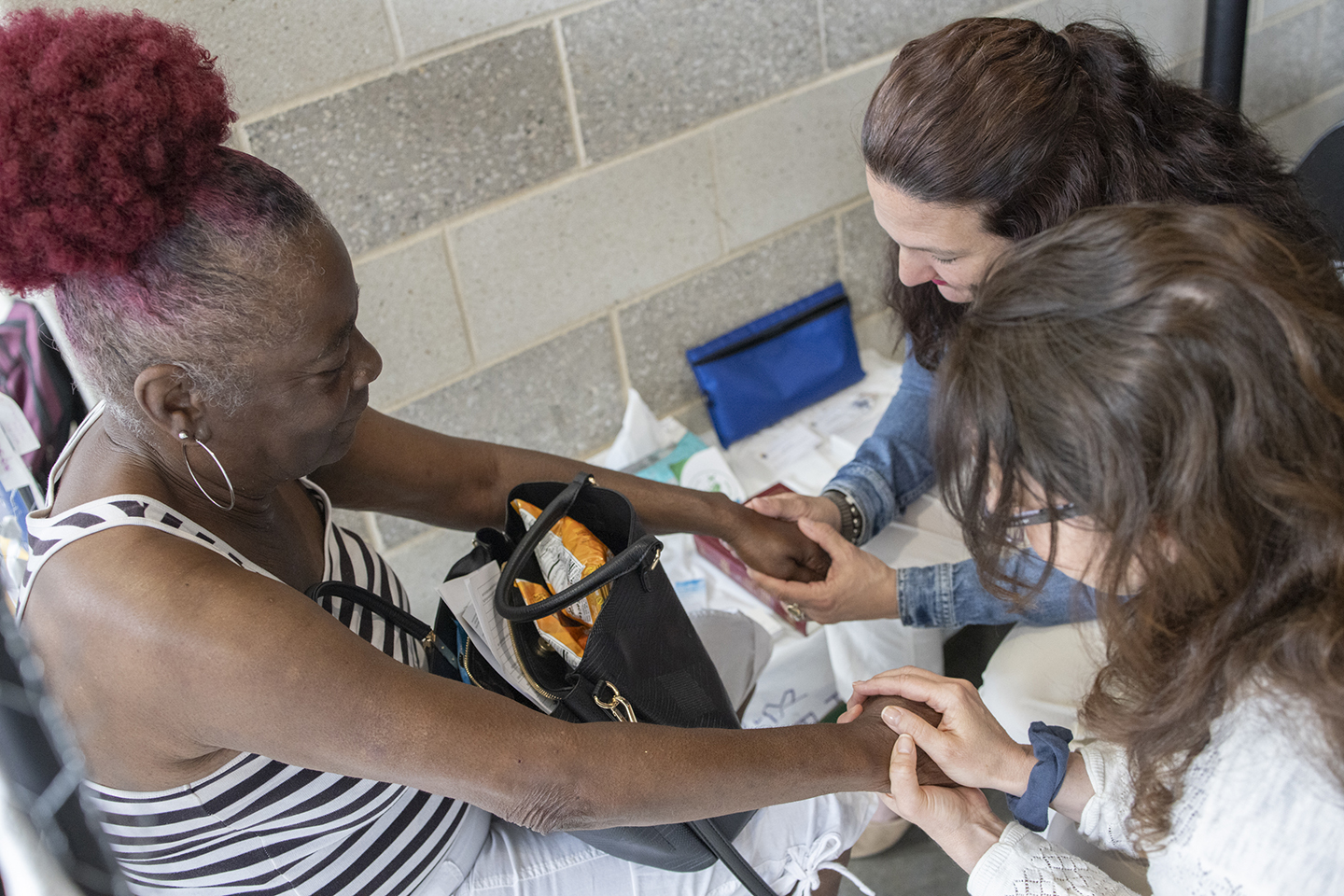Mary Mother of the Church parishioners gather in prayer as fourth person executed in Missouri this year
The Church teaches that capital punishment is inadmissible in all cases

As Christopher Collings was put to death by lethal injection Dec. 3, a small group tucked into the Mary Mother of the Church chapel 45 miles north prayed for his soul.
A handful of parishioners and pastor Father Steve Robeson sang the Divine Mercy Chaplet, then “Jesus, Remember Me,” and asked the Lord to welcome Collings’ soul and bring comfort to the family of Rowan Ford.
Collings was executed by the state at 6 p.m. at the Eastern Reception, Diagnostic and Correctional Center in Bonne Terre. He was injected with pentobarbital and died nine minutes later, according to the Associated Press.
Collings was convicted of raping and killing 9-year-old Rowan Ford in 2007 in Stella, a small village near Joplin in southwest Missouri.
“Right or wrong I accept this situation for what it is. To anyone that I have hurt in this life I am sorry. I hope that you are able to get closure and move on,” Collings wrote in his last statement. “Regardless which side of this situation that you are on, you are in my prayers and I hope to see you in heaven one day.”
A group of Mary Mother of the Church parishioners started hosting a simple prayer service during executions earlier this year, said Jeanne Schepers, chair of the parish’s peace and justice ministry. It offers a chance for prayer and solidarity for those who are unable to travel down to the Bonne Terre prison to join the peaceful prayer vigil there.
Schepers has previously participated in the Bonne Terre vigil and was very moved by praying the Sorrowful Mysteries of the Rosary on the bus trip down, she said.
“Having in your mind that a person was being executed changed the whole thing,” she said. “You saw Jesus in the person going through this.”
Prayer during executions is important because “it’s solidarity,” Schepers said. “We’re one with each other, and it gives us hope to not give up and to continue to try to be merciful to whomever.”
Susan Buerkle writes a letter to Gov. Mike Parson each time an execution is scheduled to ask him to halt it. “I always quote Scripture — ‘I desire mercy, not sacrifice’ — I always put that in the letter,” she said. “It just blows my mind that they can say they are pro-life and yet execute human beings.”
Leslie Najjar, the parish’s pro-life coordinator, came to pray “in support of Chris and all people whose lives aren’t respected,” she said.
“Every life is precious. We shouldn’t be taking anyone’s life,” she said. “Everyone deserves a chance to take the time to become closer to God.”
The Missouri Catholic Conference, Missourians to Abolish the Death Penalty and other groups had asked Gov. Mike Parson to reduce Collings’ sentence to life in prison without parole. A clemency application filed by Collings’ attorneys detailed the physical and sexual abuse he experienced as a child, brain abnormalities that impaired judgment and argued that mitigating evidence about his mental state was not presented to the jury at trial. It also noted that the co-defendant in the crime David Spears was allowed to plead to a lesser charge and ultimately served just seven years in prison.
Gov. Parson denied clemency; he has not granted clemency to any death row inmate since taking office in 2018. Collings’ appeal to the U.S. Supreme Court also was denied on Dec. 2.
The Church teaches that capital punishment is inadmissible in all cases because it is an attack on the inviolability and dignity of the person.
Collings was the fourth person executed in Missouri this year and the 23rd nationwide. Only Alabama, with six, and Texas, with five, have executed more people in 2024. Two more are scheduled in December in Indiana and Oklahoma.
Church teaching on the death penalty (updated 2018)
Recourse to the death penalty on the part of legitimate authority, following a fair trial, was long considered an appropriate response to the gravity of certain crimes and an acceptable, albeit extreme, means of safeguarding the common good.
Today, however, there is an increasing awareness that the dignity of the person is not lost even after the commission of very serious crimes. In addition, a new understanding has emerged of the significance of penal sanctions imposed by the state. Lastly, more effective systems of detention have been developed, which ensure the due protection of citizens but, at the same time, do not definitively deprive the guilty of the possibility of redemption.
Consequently, the Church teaches, in light of the Gospel, that “the death penalty is inadmissible because it is an attack on the inviolability and the dignity of the person,” and she works with determination for its abolition worldwide.
Catechism of the Catholic Church, 2267
The state of capital punishment
Number of 2024 executions in the U.S.: 23, with two more scheduled in December in Indiana and Oklahoma
States that carried out executions in 2024: Missouri, Texas, Oklahoma, Utah, Alabama, Georgia, Florida, South Carolina
U.S. states that have abolished the death penalty: 23, plus the District of Columbia
States that have not abolished the death penalty but haven’t executed anyone in more than five years: 15 (including five with governor-imposed moratoriums)
Source: Death Penalty Information Center, deathpenaltyinfo.org.
The Church teaches that capital punishment is inadmissible in all cases
Subscribe to Read All St. Louis Review Stories
All readers receive 5 stories to read free per month. After that, readers will need to be logged in.
If you are currently receive the St. Louis Review at your home or office, please send your name and address (and subscriber id if you know it) to subscriptions@stlouisreview.com to get your login information.
If you are not currently a subscriber to the St. Louis Review, please contact subscriptions@stlouisreview.com for information on how to subscribe.

